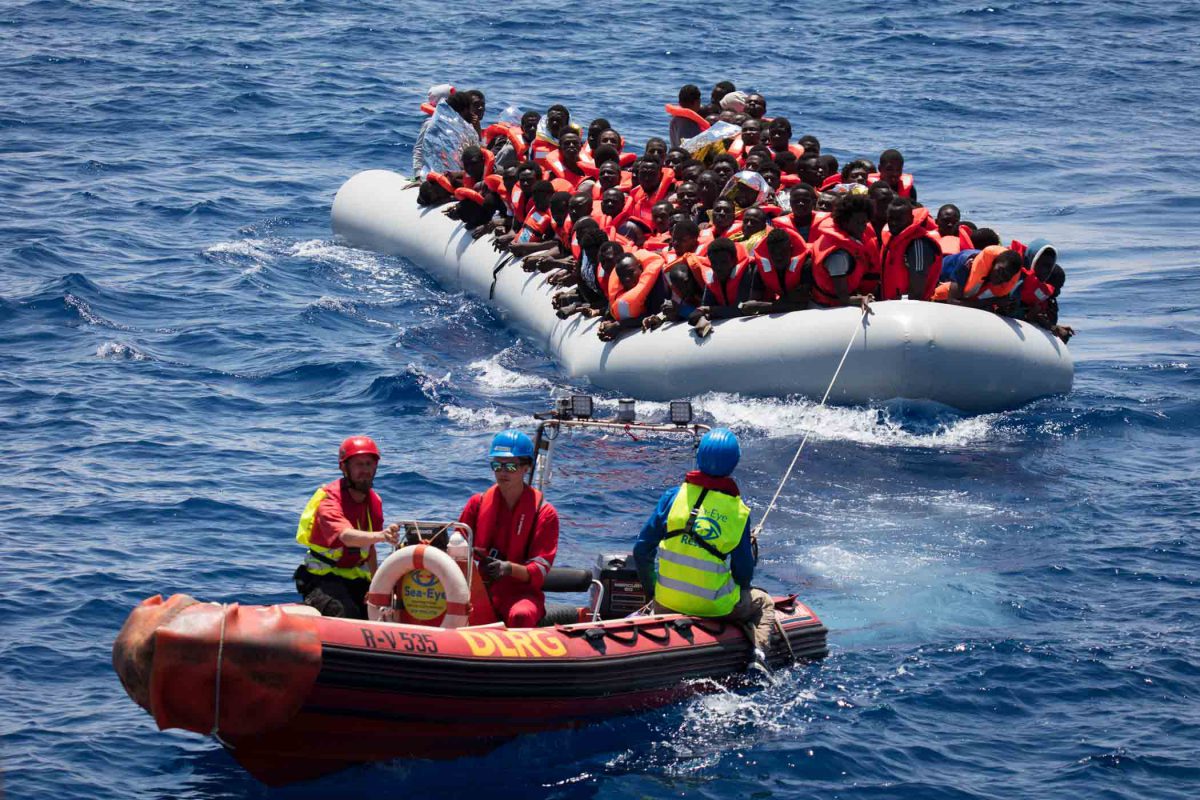Request: Attack on rescue ship Alan Kurdi by Libyan militias

In order to be able to exercise my parliamentary control function as a Member of the European Parliament, I have the opportunity to put questions to the European Commission. The Commission must answer these questions.
On 02/28/2020, I received answers from the Commission to the following questions:
Question for written answer E-003535/2019 to the Commission
Subject: Attack by Libyan militias on the rescue ship Alan Kurdi
Men fired warning shots and threatened with their guns on board, endangering not only the crew of the Alan Kurdi, but also some 90 people in distress at sea. The Libyan ships had no boat identification.
There is also information that Abd Al-Rahman Al-Milad, known as Al Bija, who is on an EU sanctions list for involvement in human smuggling, has again taken over as head of the Zawiya coast guard.
1. can it be ruled out that the militias involved in the attack or the regional unit of the Libyan coast guard in Zawiya are being financed or trained by the EU, or is it at all comprehensible which funds flow to which coast guard?
2. what information does the Commission have about the militias involved in the attack and what steps have been taken, for example, to press another Libyan coast guard to investigate the case?
3. according to a new decree issued by the government in tripoli, NGO vessels operating in libyan waters will in future be required to obtain a licence from the libyan authorities; how will the Commission help to ensure that the libyan authorities bring this decree into line with international law and do not apply it in international waters, for example in their sea rescue zone?
E-003535/2019
Answer from Ms Johansson
on behalf of the European Commission:
The Commission has always considered it a priority to support the capacity of partner countries to improve search and rescue services for sea rescue, and appropriate management of migration requires a balanced approach ranging from ensuring protection for people in need to strengthening border management.
The main recipient of EU funds from the EU Emergency Trust Fund for Africa, the General Coastal Defence Administration under the Ministry of Interior of Libya, has so far received a series of basic training courses for nearly 100 staff. 477 Libyan Coast Guard and Ministry of Defence naval officers under the Ministry of Defence have received training on human rights and international law, among other things, in Operation Sophia. This training has been carried out following a review process which ensures that the officers concerned are not on the UN sanctions list. The head of the Coast Guard, Abd Al-Rahman al-Milad, on the UN sanctions list is under investigation. The Libyan Coast Guard has informed the Commission that he has been suspended from the operational service.
Libya has ratified the Convention on Maritime Search and Rescue Services and in December 2017 announced the Libyan Search and Rescue Zone, clearly establishing that the primary responsibility for coordinating rescue operations in the designated region lies with the Libyan authorities. The Commission will continue to closely monitor the projects and improve cooperation with the Libyan Coast Guard and the General Coastal Defence Administration in the context of these projects and in the framework of the EU Integrated Border Management Support Mission. The Commission's objective is to assist Libya to assume responsibility in its territorial waters in compliance with international standards.